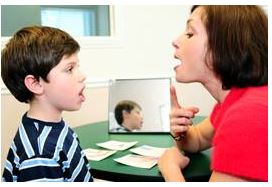Worth Repeating: Tips on Picking a Speech-Language Pathologist: What to Look Out For
Editor’s Note: We saw this on the Stuttering Foundation Blog and thought it was worth saving to share with your clients who stutter when they are moving away from you!
[Source: The Stuttering Foundation]

This year’s International Stuttering Awareness Day theme (People Who Stutter Supporting Each Other) inspired me to read numerous articles by those who stutter and to listen to some classic podcasts on StutterTalk which has lead to this post on how to pick a SLP who understands stuttering. Following on from my last blog entry, where I encouraged parents to seek out early intervention, I hope that some of the tips below resonate with some of you (whether you are a SLP who works with people who stutter or a consumer of stuttering therapy) when looking for a SLP to work with you or your child.
As a person who doesn’t stutter, I would like to acknowledge Dr Walter Manning’s work; as the tips are a summary of an excellent article he wrote in 2004.
Note: Dr Walter Manning is a clinician/person who stutters who has published over 100 articles on stuttering. He is also the author of the textbook, Clinical Decision Making in Fluency Disorders – 3rdEdition (published in 2010).
Attributes and Skills of SLPs to Look Out For
Along with relevant experience, speech language pathologists who have a deep understanding of stuttering are usually more effective. They:
Listen closely to their clients so they understand their story. Listening allows one to go beyond the surface behaviours and begin to understand the client’s interpretations of his or her problem. Listening with empathy facilitates understanding without judgement, which in turn helps develop a working alliance between the clinician and the client.
Read the Rest of this Article on the Stuttering Foundation Website
PediaStaff is Hiring!
All JobsPediaStaff hires pediatric and school-based professionals nationwide for contract assignments of 2 to 12 months. We also help clinics, hospitals, schools, and home health agencies to find and hire these professionals directly. We work with Speech-Language Pathologists, Occupational and Physical Therapists, School Psychologists, and others in pediatric therapy and education.
